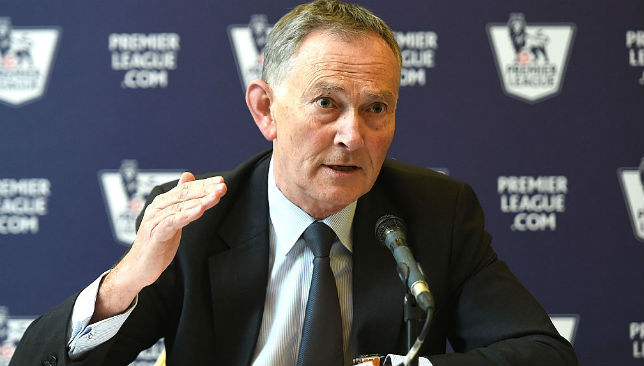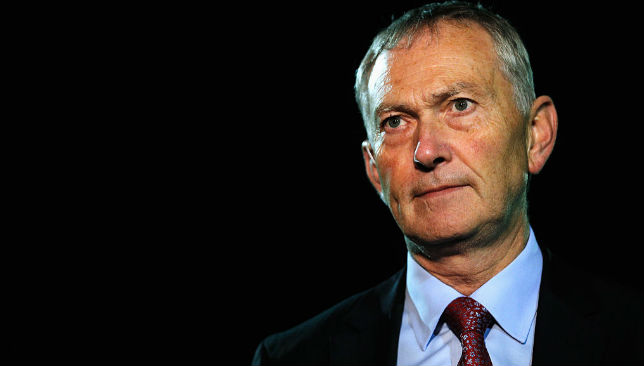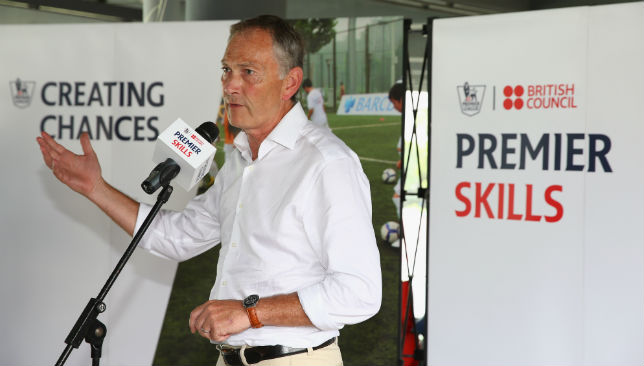
Richard Scudamore took English football by surprise on Thursday when he announced he is to stand down as the Premier League‘s executive chairman by the end of the year.
He has presided over almost two decades of continued success in establishing the brand both at home and abroad, and brought huge wealth to the league’s shareholders, the clubs.
Here, we take a look at his legacy and what may lie ahead.
What has Scudamore achieved during his reign?
In short, a great deal. The Premier League is regarded internationally as the most lucrative in the game, dwarfing Spain’s LaLiga and the German Bundesliga in terms of its earning power with the domestic broadcast deal currently in place worth a staggering £5.14billion.
It is also the most attractive to top players and managers, not least because of the riches on offer, and boasts some of the biggest names in the game.
Scudamore has presided over exponential growth in revenue for top-flight clubs – the UK television rights were worth around £670 million when he was appointed – even during a period of general austerity, and all 20 members during the 2016-17 season recorded operating profits.
In addition, he has tempted BT and more recently Amazon into the market to challenge Sky’s monopoly on live coverage.

What challenges has he faced?
Scudamore’s efforts to sell Premier League rights to North America, the Far East and Africa have defied expectation, and it is those international successes which have proved his most recent triumph.
The new domestic deal which comes into effect in 2019 is the first for some time to be sold for less than its predecessor – around £500,000 less – after rises of up to 70 per cent previously.
He has also managed to avert a potential breakaway by the top six by this week brokering an agreement which will see a greater proportion of the future proceeds from overseas rights distributed on merit.
Why is he going now?
A good question with few commentators anticipating his announcement. He has been in charge for almost 20 years and in terms of the task with which he was charged by the Premier League’s members, has delivered handsomely.
Maintaining a level of contentment is likely to become more challenging as individual clubs press their own claims, while the market for broadcasting rights is growing, but could be more testing.

Has it all been good news?
It depends where you are looking from. Outside of the English game’s elite, there is a perception – which is difficult to deny – that the rich are getting richer and the rest are being left behind.
Portsmouth’s spectacular demise may have served as a salutary lesson, but the the cost of losing top-flight status is one which has prompted victims to gamble on a swift return, successfully in the case of Newcastle in 2016-17, but not for Aston Villa, whose failure to win promotion last season at the second time of asking has resulted in worrying financial difficulties.
In addition, while the Premier League has raised standards on the pitch, it has done little to benefit the England team with the influx of foreign players limiting opportunities for home-grown talent.
What lies ahead for his successor?
In short, more of the same. The mission will be to build upon Scudamore’s legacy, to maximise the earning potential of the league’s clubs and to maintain its profile in world football.
The changing face of broadcast media, with online streaming likely to be a new focus, will bring its own challenges, as would an early exit from this summer’s World Cup finals for Gareth Southgate’s team and the debate it would rekindle.
Provided by Press Association Sport